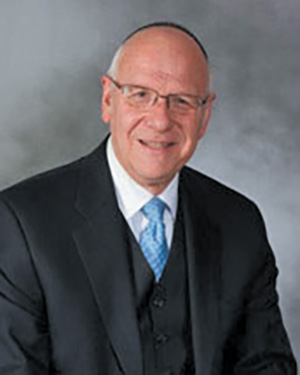
Parshat Mishpatim
Shabbat Shekalim
The special haftarah ordained by Chazal to be read on Shabbat Shekalim, the Shabbat of, or before, Rosh Chodesh Adar, is a selection taken from Sefer Melachim II in which we read of the fundraising campaign initiated by King Yehoash to provide the funds for the much-needed repair of the Beit Hamikdash, a structure that had been built over 100 years earlier.
The reason for the selection of this episode for Shabbat Shekalim is rather obvious. As the opening mishnah of Masechet Shekalim teaches, public announcements were made starting with Rosh Chodesh Adar to remind the people of their obligation to donate one-half-shekel to the Beit Hamikdash during this month. The half-shekel donation was used for the purchase of the communal sacrifices that were offered daily, thereby giving each and every Jew a share in each and every public sacrifice. Likewise, the haftarah tells us of how the king also raised funds for the Holy Temple and, although the donations do not seem to be obligatory nor of a set amount as in the mitzvah of machatzit hashekel (the half-shekel), this story, as told in Divrei HaYamim II (23: 9), explains that, indeed, the funds included “ish kesef nafshot erko,” that is, the half-shekel donations, similarly described in today’s special maftir reading as “ish kofer nafsho.” In this way, all of Israel felt they had taken part in the repair of the Beit Hamikdash and that they had a share in the Holy Temple as well.
This theme is essential to understanding why the Torah obligates the donation of a half shekel rather than a full shekel. Although much has been written about this, what remains in my mind are those explanations that suggest that no matter how generous one may be, no matter how righteous one may be, he can only be a “half,” for no Jew is complete without being part of another. Even if one gives large sums to charity he has only accomplished half of the mitzvah, for tzedakah obligates us to do more than give money. It requires us to show care, concern and kindness to one in need.
In this regard, the haftarah also ties into the upcoming chag of Purim that emphasizes the unity of Am Yisrael by decreeing the mitzvah of mishloach manot and matanot la’evyonim that remind us how the miraculous events of Purim occurred only when all Jews (of Shushan) joined Esther in her fast and the entire nation in Persia gathered together to defend themselves from the attack.
“We Are One” is more than a catchy phrase. It is an essential requirement for our very existence. Whether when giving or worshipping or fighting, we are, indeed, one.
By Rabbi Neil N. Winkler
Rabbi Neil Winkler is the rabbi emeritus of the Young Israel of Fort Lee and now lives in Israel.













